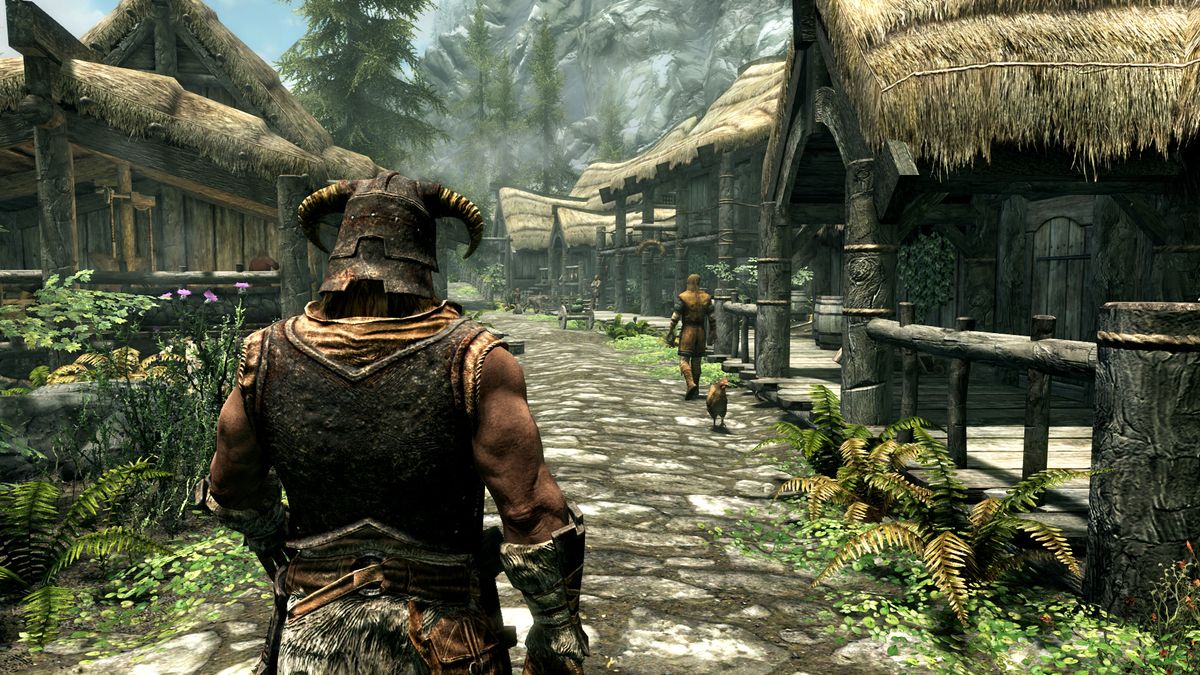Modern open-world games might be more tedious nowadays, filled with checklists, map markers, and copy ‘n’ pasted enemy camps that suck out the feeling of discovery because of the ballooning size of game budgets and game studios, one Bethesda veteran suggests.
Rock Paper Shotgun recently delved into the checklistification of open worlds, where former Fallout and Elder Scrolls designer Nate Purkeypile – now working on heavy metal horror The Axis Unseen – added some context behind the slew of massive snoozefests we’ve seen in recent years. Purkeypile says that today’s open worlds “can be a lot of fun,” but so often they miss “that feeling of not really knowing what’s over there and feeling surprised – you don’t really feel like you’re exploring the world, if you’re not actually surprised.”
Purkeypile is especially qualified to speak on such matters since he worked on Skyrim’s now-iconic Blackreach, an entire city hidden underground behind an unsuspecting door that looks like the entrance to any regular old dungeon. The game never really alerts players of its presence, and it’s the type of bespoke surprise that was, for many people, missing in Starfield’s galaxy of randomly repeated POIs.
“When you have literally thousands of people working on the game, sometimes you need to be able to have these bite-sized portions of ‘do this, go there.’ It’s very hard to run things at that scale without all those checks and balances and stuff,” Purkeypile explains, before pointing to Skyrim’s relatively leaner development. “We were like 100 people back then, and there were lots of trust in the team, where you could just take something and make it your own. Like Blackreach – that was not on the schedule at all.”
Starfield, meanwhile, “was like 500-ish people across four studios,” though he notes the sprawling space RPG still had “a lot of individual storytelling there” – it’s just “harder at that scale.”
That’s not to say that Morrowind-ish open worlds, where you’re essentially let loose to discover the land without the help of an in-game GPS, don’t still exist. Both Breath of the Wild and Tears of the Kingdom are all about making players work to find another hidden crypt, or hidden village, or an ‘aha’ lightbulb moment. The Outer Wilds is similarly mute when it comes to warning players about the, umm, fishy dangers of outer space. And my favorite recent trend comes from all the slimmer open-world games that trim the genre’s fat in favor of a focused sandbox.
Check out the best open-world games to find something hopefully less tedious.








:max_bytes(150000):strip_icc()/roundup-writereditor-loved-deals-tout-f5de51f85de145b2b1eb99cdb7b6cb84.jpg)


